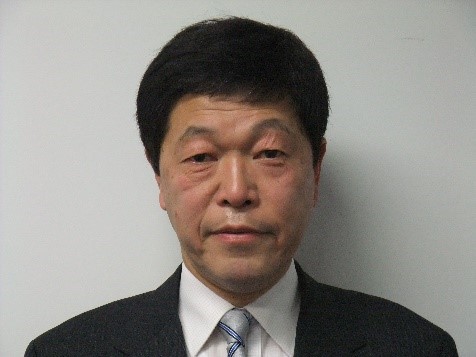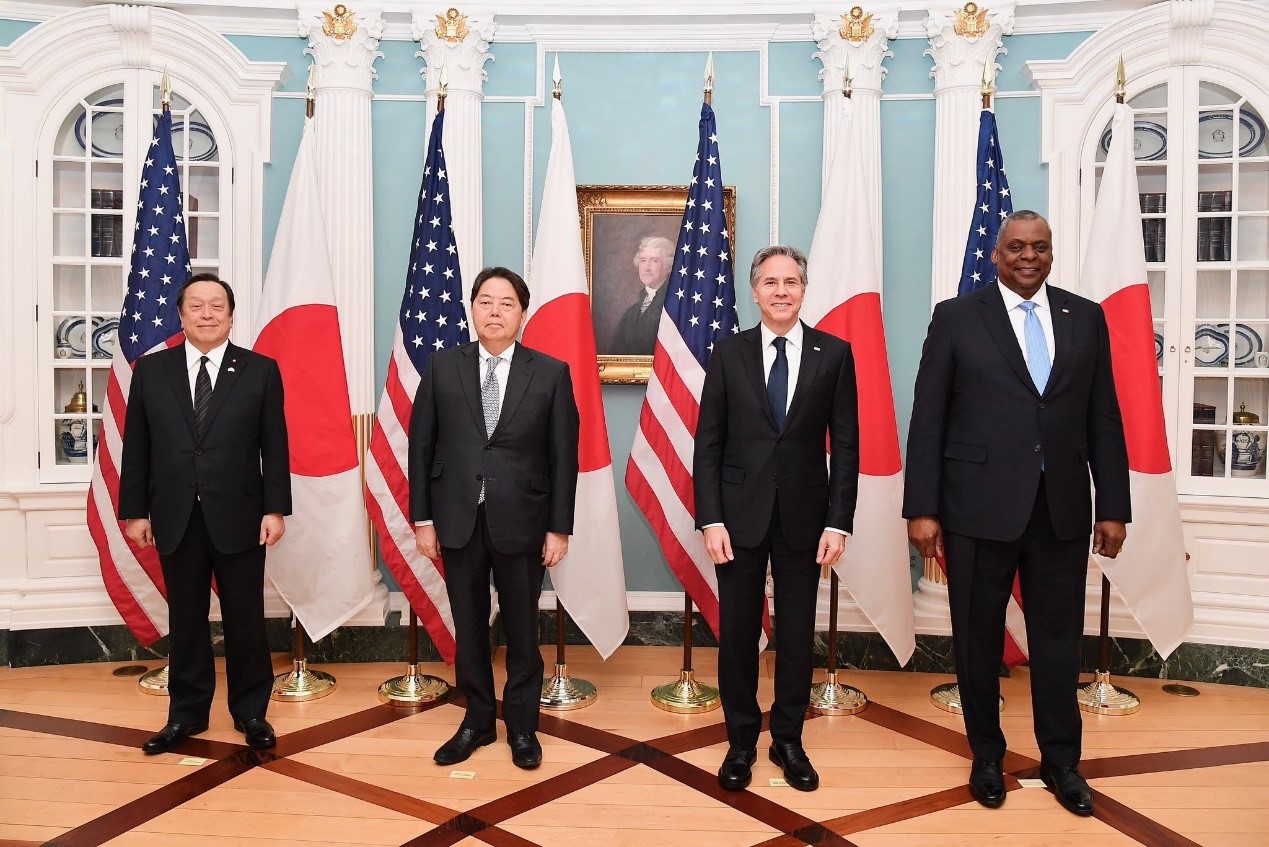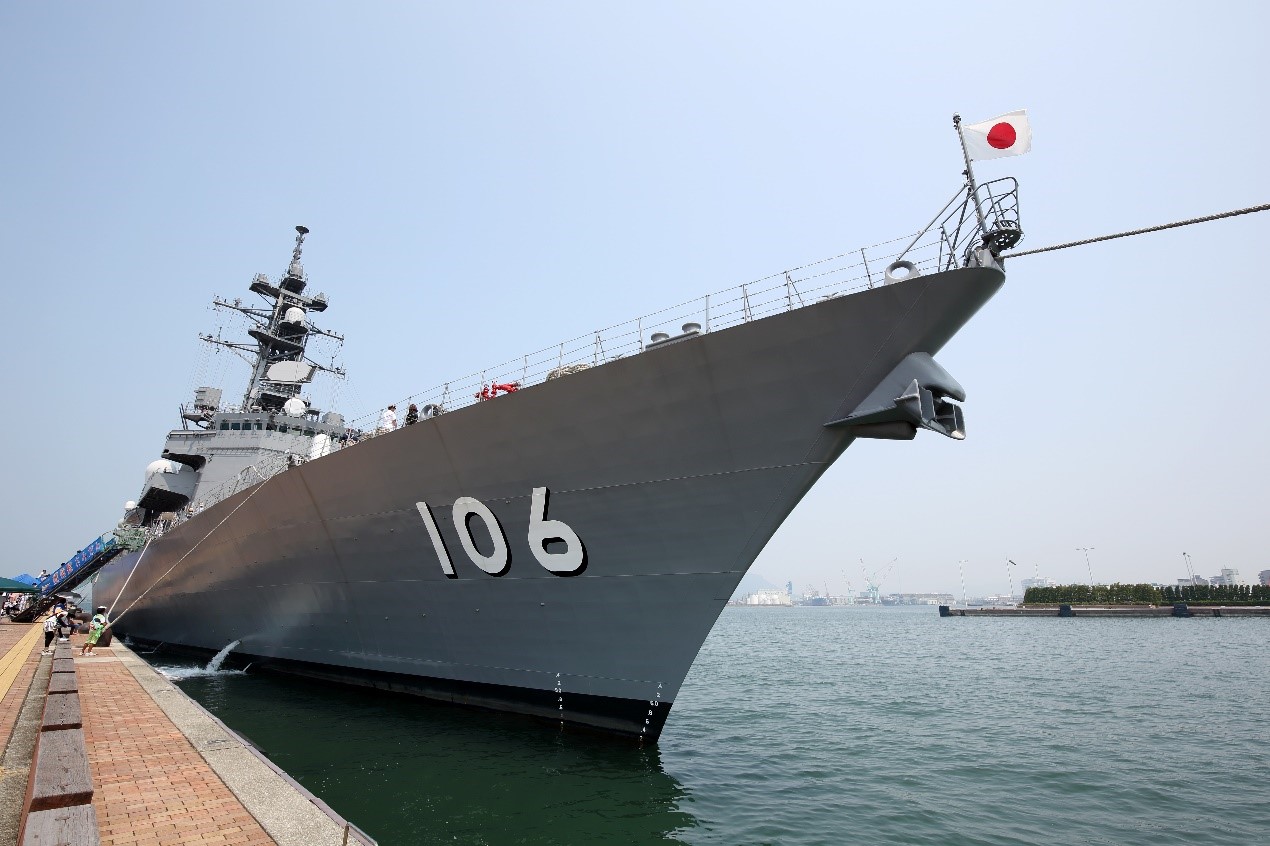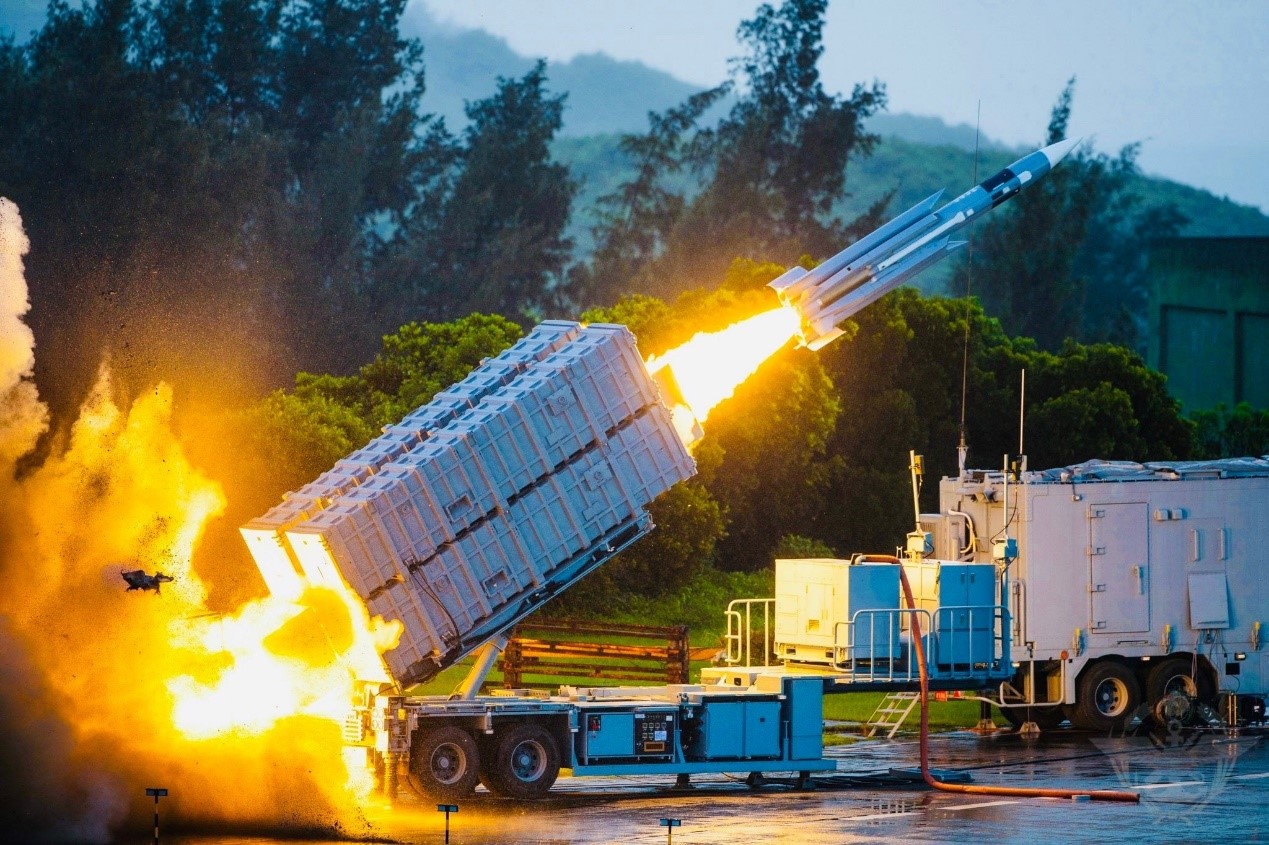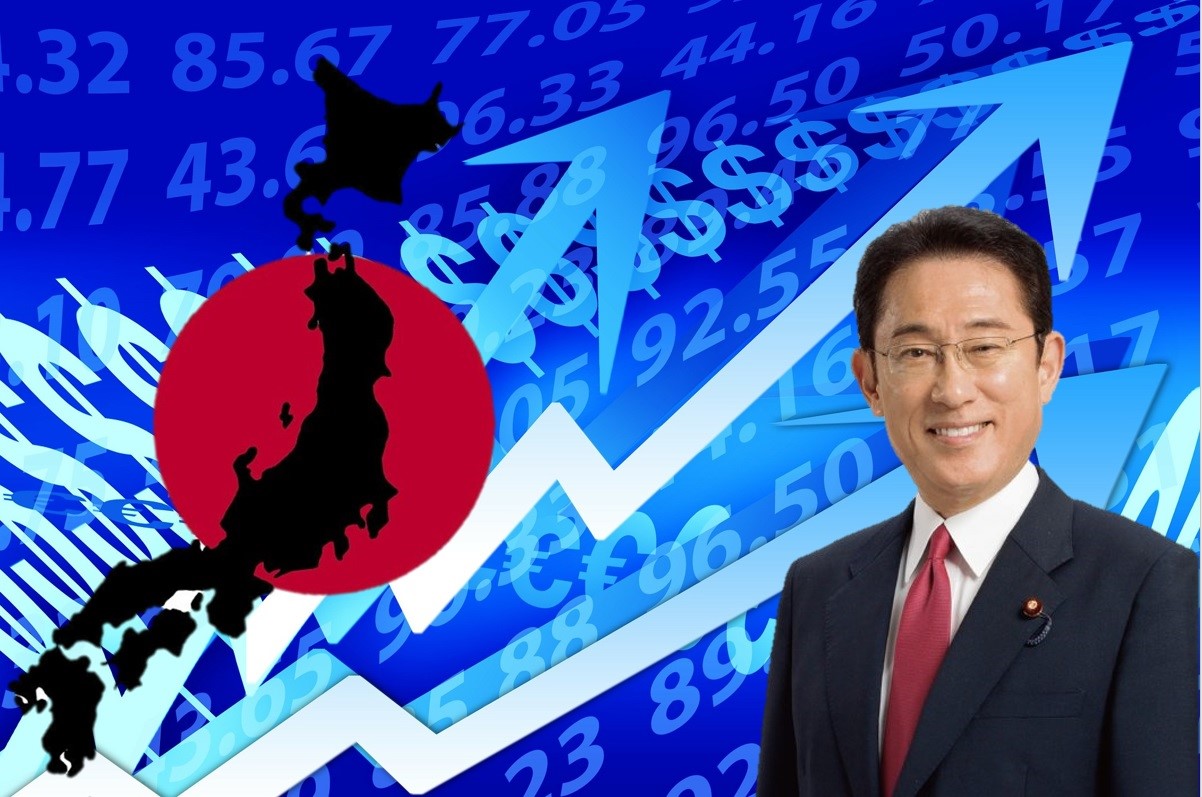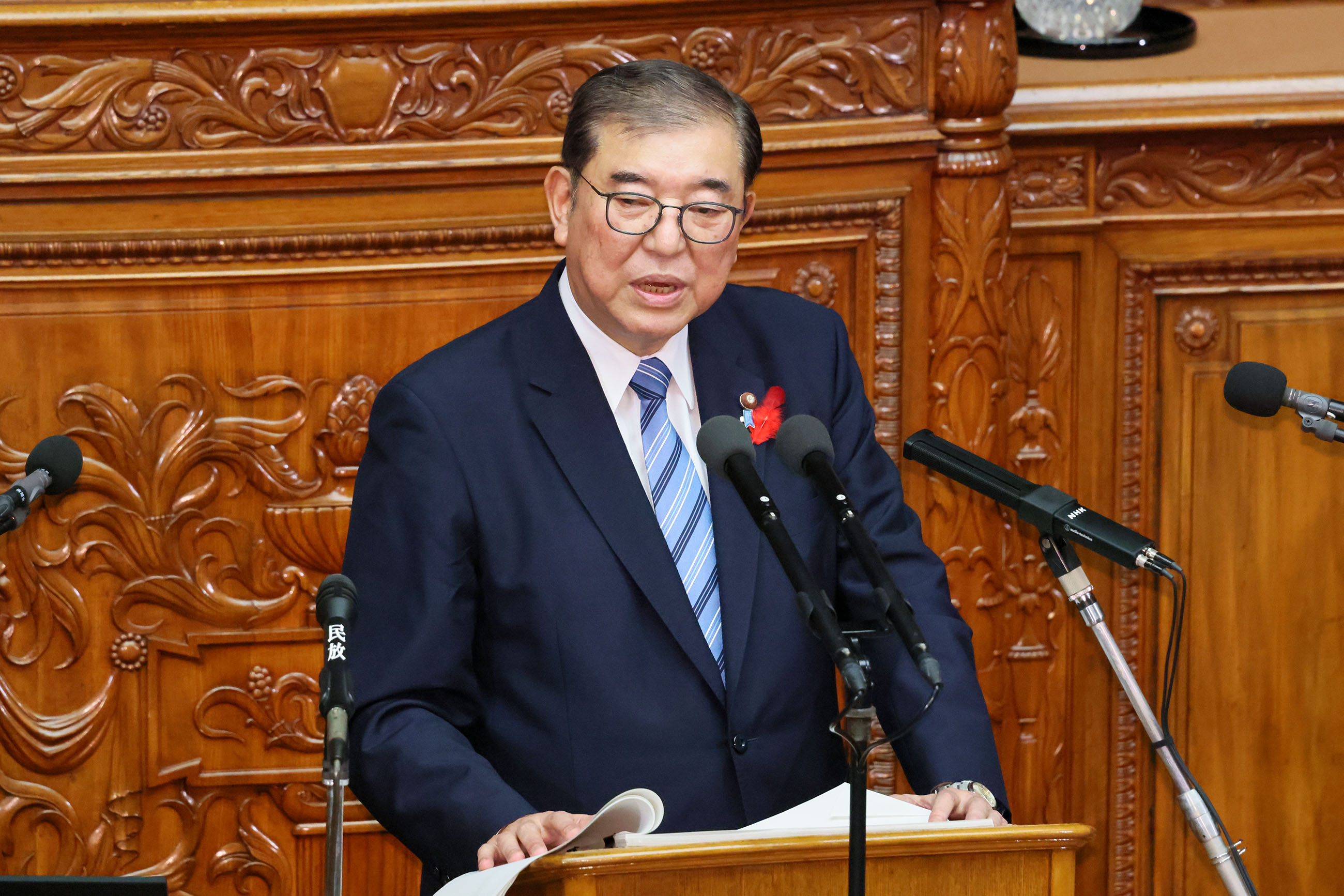Japan’s New National Security Strategy – An Awakened Japan and Its Implications for Taiwan
Japan believes that the peace and stability across the Taiwan Strait is indispensable for the security and prosperity of the international community, and shares this notion with the U.S., as stated in the Japan-U.S. “2+2” Joint Statement and in the Japan-U.S. leaders’ Joint Statement of January 2023. Picture source: Japan Ministry of Defense, January, 11, 2023, Japan Ministry of Defense, https://www.mod.go.jp/j/profile/minister/hamada/2023_1.html.
Japan’s New National Security Strategy – An Awakened Japan and Its Implications for Taiwan
Prospects & Perspectives No. 4
By Hideshi Tokuchi
Increasingly acute international security environment surrounding Japan
Japan released a new edition of its National Security Strategy on December 16, 2022. It is a manifestation of Japan’s high spirit for national defense as it faces a radical shift in the regional balance of power amid intensifying geopolitical rivalry.
It shows Japan’s serious concern about China’s activities and perceives China as an unprecedented and the greatest strategic challenge. North Korea is described as an even more grave and imminent threat than ever before. Russia, which has shaken the very foundations of the international order with its invasion of Ukraine, represents a strong security concern, as does the country’s strategic partnership with China. The U.S., though still considered to be the world’s greatest comprehensive power, has increasing difficulty in maintaining a free and open international order.
The national interests and national security objectives defined in the strategy remain essentially the same as before, but the security environment surrounding Japan having shifted dramatically, the means by which to preserve Japan’s interests and achieve its objectives had to be reviewed thoroughly. That is what the new strategy tries to articulate. In fact, it explicitly says that the strategic guidance and policy under the Strategy will dramatically transform Japan’s national security policy after the end of WWII from the aspect of execution.
Japan’s national security: harnessing its comprehensive national power
National security is not just about military affairs. Japan’s new strategy straightforwardly emphasizes that national security cannot be achieved without whole-of-nation efforts. The new strategy enumerates diplomatic, military, economic, technological and intelligence capabilities as the main elements of comprehensive national power for Japan’s national security and establishes the ways to integrate these capabilities to achieve the security objectives.
Among the remarkable changes in policy are a major increase in Japan’s defense budget and the acquisition of new military capabilities, particularly “counterstrike” capabilities. As for budget issues, Japan commits to increase the level of its defense budget to 2 percent of the current GDP in FY 2027, even by raising taxes. The counterstrike capabilities will, in the case of missile attacks, enable Japan to mount effective counterstrike against the adversary’s territory to prevent further attacks. The acquisition of such capabilities was a matter of sensitive political debate for a long time.
When it comes to non-military security, the new strategy emphasizes economic security, energy security and food security to make the Japanese economy and society more resilient. This is also to be accomplished by maintaining and strengthening an open and stable international economic order. It also entails efforts to address serious global challenges such as climate change and infectious diseases, which have a considerable impact on Japan’s national security.
Challenges for the “dramatic transformation” of Japan’s national security policy
The new National Security Strategy is full of powerful language to express Tokyo’s determination to meet the serious challenges at “a historic inflection point,” facing “the most severe and complex security environment since the end of WWII.” The strength of the resolve is shown in the 27.4% increase of the annual defense budget for FY 2023 in contrast to 1.7% increase in social security and 0.5% increase in education, science and technology.
The Japanese public seems to have a positive view on the new strategy, but it will take a considerable amount of time and resources to establish the robust national security structure even if the government puts all its energy into it. Consistent, continuous, and unrelenting efforts will be necessary.
There remains some uncertainty about the implementation of the new strategy. Public support for tax increases seems weak. Deployment of the new capabilities may cause strong opposition among local communities. It is not certain if other relevant ministries are cooperative to make Japanese and American military operations smooth and effective. Unwillingness to accept the roles of the military for preserving peace and stability might linger on in the Japanese mindset. While the Russian invasion of Ukraine has raised Japanese public concerns about their security, it is an open question whether this public awareness will continue for long. It is indispensable for the Government of Japan to maintain the current momentum by winning robust public support.
The importance of the partnership with Taiwan
Prime Minister Fumio Kishida often says that Ukraine today could be East Asia tomorrow. The saying that a Taiwan contingency would be a Japan contingency is more popular among the Japanese public. A public opinion poll conducted soon after the Russian invasion of Ukraine showed that a large majority of the Japanese were concerned about the possibility that the Russian invasion would affect the situation involving Taiwan.
The understanding of the importance of the peace and stability across the Taiwan Strait for the security and prosperity of the international community is shared more widely among U.S. allies and partners — including Japan. Japan’s new security strategy reflects the notion. It also states, “Taiwan is an extremely important partner and a precious friend of Japan,” and declares, “Japan will continue to make various efforts based on its position that the cross-strait issues are expected to be resolved peacefully.” Taiwan is a highlight of the new strategy.
However, it remains to be seen how Japan will harness its comprehensive national power to the peace and stability across the Taiwan Strait. If Japan’s defense architecture and the Japan-U.S. Alliance are strengthened in accordance with the new strategy, it will contribute much also to the security of Taiwan because it will make U.S. military operations for the defense of Taiwan more effective. But that is not enough. Trilateral communication and partnership between the U.S., Japan and Taiwan in security terms will be indispensable to deter China’s military ambitions and ensure the regional peace and stability. There is no such thing as security only for Taiwan or only for Japan. A political-military framework for the partnership is a missing piece in Japan’s new strategy.
Japan believes that the peace and stability across the Taiwan Strait is indispensable for the security and prosperity of the international community, and shares this notion with the U.S., as stated in the Japan-U.S. “2+2” Joint Statement and in the Japan-U.S. leaders’ Joint Statement of January 2023. The establishment of such a trilateral framework should therefore be an agenda of Japan-U.S. Alliance cooperation, capitalizing on the release of the national security strategies by both countries. As both countries resolved to jointly strengthen Alliance activities with their partners, Taiwan should be included in the partnership.
(Hideshi Tokuchi is Visiting Professor and Senior Fellow, National Graduate Institute for Policy Studies(GRIPS).

